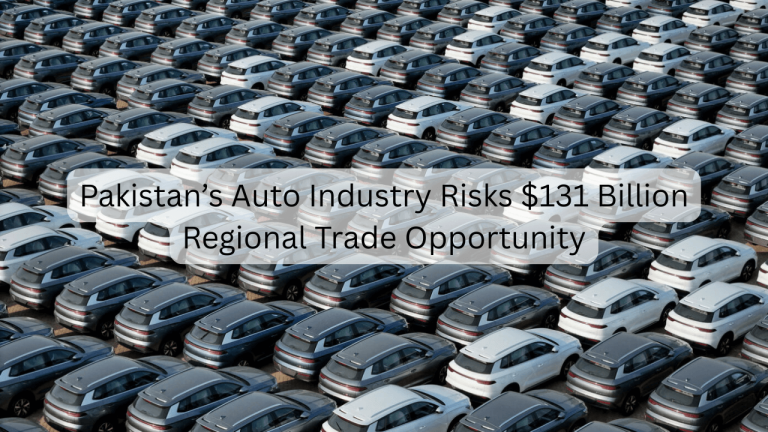Pakistan stands to access a $131 billion regional automobile trade market, with even a modest 5% share potentially generating $6.5 billion in exports each year, a new report says.
But the Pakistan Association of Automotive Parts & Accessories Manufacturers (PAAPAM) has cautioned that policy changes, such as tariff adjustments and the importation of second-hand vehicles, might reverse decades of achievements made by the domestic auto-parts sector.
A Resilient Industry under Threat
- The auto-parts industry in Pakistan comprises more than 1,200 component vendors and employs 1.83 million individuals.
- It saves the economy over $1.25 billion annually in imports.
- Firms have sunk more than Rs100 billion in plant and tooling.
- Yet, with just 20 cars per 1,000 citizens, Pakistan’s car use is much lower than India, Vietnam, and Thailand, constraining local demand.
Challenges Confronting the Industry
PAAPAM enumerated a number of impediments:
- No test facilities.
- Energy and borrowing expenses too high.
- Unstable government policies.
- Uncontrolled used-car imports, which take away from local output.
The group emphasized that while tariffs were meant to promote localisation, recent adjustments are rendering imported kits as affordable as raw materials—giving an unfair edge for imports over domestic manufacturers.
Risks of Policy Shifts
PAAPAM cautioned that further flattening of tariffs and legalisation of used-car imports may:
Forced local vendors out of business.
- Lead to huge job losses.
- Shaken investor confidence.
- Reverse years of investment in localisation.
The Way Forward
Even with setbacks, Pakistan’s auto industry remains promising, particularly in the parts and services aftermarket. But progress is being stifled by problems such as unofficial imports and poor enforcement.
The report says that Pakistan has to make its choice wisely:
- Either shield and expand its domestic auto-parts sector with stable, supportive policies,
- Or imperil decades of gains by opening up too rapidly under liberalisation.

